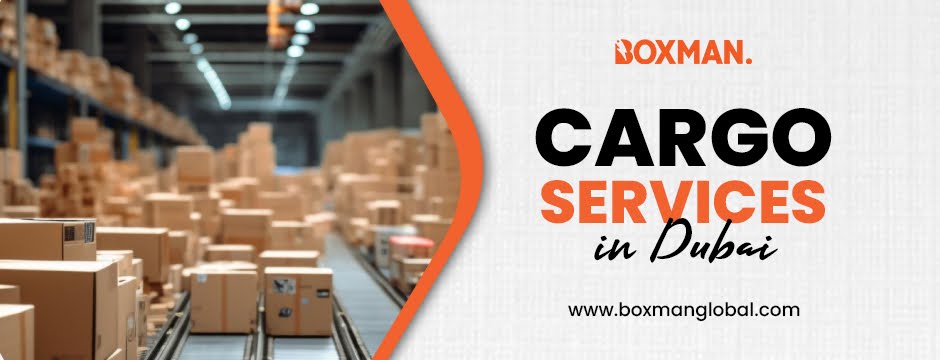
In today’s interconnected global landscape, businesses are more linked than ever before. A crucial component of this intricate web is the freight forwarding company. These companies play a vital role in modern supply chains, ensuring that goods move efficiently and effectively from one point to another. But what exactly do freight forwarding companies do, and why are they so important?
What is a Freight Forwarding Company?
A freight forwarding company acts as an intermediary between the shipper (the company or individual sending the goods) and various transportation services. They manage the logistics of transporting goods from the point of origin to the final destination. This includes arranging for the best routes, handling paperwork, and coordinating with carriers such as shipping lines, airlines, and trucking companies.
Key Functions of Logistics companies
1. Transportation Management
Logistics companies are experts in organizing and managing transportation. They choose the most efficient routes and methods to get goods to their destinations. This involves selecting the best carriers, whether by sea, air, or land, and ensuring that shipments are on schedule. They have a deep understanding of various transportation options and can offer valuable advice on the most cost-effective solutions.
2. Customs Handling
One of the most complex aspects of international shipping is customs compliance. Freight forwarders are skilled in navigating the rules and regulations of different countries. They handle customs documentation, including import and export declarations, and ensure that all tariffs and taxes are paid. This helps prevent delays and avoids potential fines or legal issues.
3. Warehousing and Storage
Freight forwarders often provide warehousing services as part of their offering. They manage the storage of goods before they are shipped, ensuring that items are stored safely and efficiently. This can include inventory management, order fulfillment, and even packaging services. By utilizing these services, businesses can streamline their operations and reduce overhead costs.
4. Insurance
Transporting goods always carries some risk. Freight forwarders offer insurance options to protect shipments against damage, loss, or theft. They help businesses understand the types of insurance available and select the coverage that best suits their needs. This additional layer of protection offers both peace of mind and financial security.
5. Tracking and Visibility
Modern Logistics companies use advanced technology to offer tracking and visibility services. This means that businesses can monitor the progress of their shipments in real-time. Tracking systems provide updates on the location and status of goods, allowing companies to plan and respond to any potential issues quickly.
6. Coordination and Communication
Effective communication is key in logistics. Freight forwarders coordinate with various parties involved in the supply chain, including suppliers, carriers, and customers. They ensure that everyone is informed about the status of shipments and any changes that may occur. This coordination helps to minimize disruptions and keep the supply chain running smoothly.
The Impact of Companies Related to Freight Forwarding on Supply Chains
Freight forwarding companies are integral to the efficiency and effectiveness of modern supply chains. Here’s how they contribute:
1. Efficiency and Cost Savings
By managing transportation and logistics, freight forwarders help businesses save time and money. Their expertise in route optimization and carrier selection ensures that shipments are delivered in the most cost-effective manner. This efficiency translates into lower shipping costs and faster delivery times, benefiting both businesses and their customers.
2. Reduced Risk and Compliance
Navigating international regulations and customs requirements can be daunting. Freight forwarders reduce this risk by handling all the necessary documentation and compliance issues. This minimizes the chance of delays or penalties, allowing businesses to focus on their core operations.
3. Flexibility and Scalability
Freight forwarders offer flexibility in managing different types of shipments, whether large or small, bulky or delicate. They can scale their services according to the needs of their clients, providing tailored solutions that adapt to changing demands. This flexibility is essential for businesses that function in fast-changing markets.
4. Enhanced Customer Experience
With the support of freight forwarding companies, businesses can offer better service to their customers. On-time deliveries, accurate tracking, and efficient handling of returns contribute to a positive customer experience. Happy customers are more inclined to return for future purchases and recommend the business to others.
5. Strategic Advantage
Leveraging the expertise of freight forwarders gives businesses a competitive edge. By optimizing logistics and supply chain processes, companies can focus on their core competencies and strategic goals. This allows them to respond more effectively to market changes and customer demands.
Discover Top-Notch Cargo Services with Boxman in Dubai

Experience seamless logistics solutions with Boxman, your premier provider of cargo services in Dubai. We combine advanced logistics technology with Dubai's strategic location to deliver exceptional freight and supply chain solutions. Whether it’s air, sea, or land transport, our expert team guarantees that your cargo arrives safely and on schedule. Embrace the future of logistics today with Boxman and ensure your shipments are in the best hands.
Final Thought
Freight forwarding companies are indispensable in today’s interconnected world. Their expertise in managing transportation, customs, warehousing, and insurance ensures that goods move efficiently and securely across global supply chains. By leveraging their services, businesses can achieve significant cost savings, enhance flexibility, and provide superior customer experiences. As the logistics landscape continues to evolve, freight forwarding companies will remain pivotal in helping businesses navigate complexities and maintain a competitive edge. Embracing their services means investing in a streamlined, effective, and future-ready supply chain.